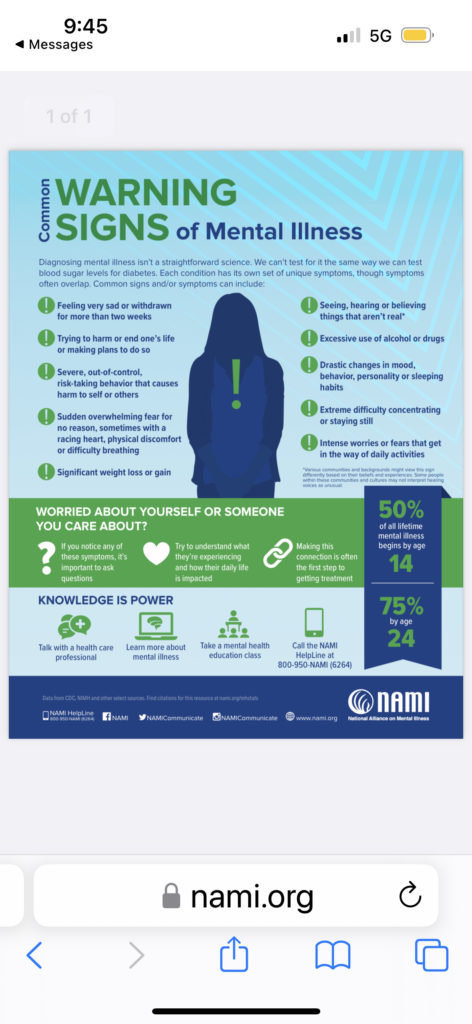By Lizz Dinnigan, Preventionist
My high school friend Nick completed suicide yesterday. I am not saying this for shock value, but to illustrate that this happens to regular people–friends and family we know and love. Suicide is a leading cause of death in the U.S. According to the Centers for Disease Control and Prevention (CDC), nearly 46,000 people took their own lives in 2000. In fact, there were two times as many suicides in the U.S. than homicides.
Despite his jovial, theatrical nature, Nick had been struggling intrinsically with mental illness for several years. Thinking about it in the aftermath, I wonder whether he sought help or remained untreated and tried to work through it on his own. Could it have made a difference? I guess you don’t know if you don’t try. That’s why it’s important to reach out.
The month of January is designated Mental Wellness Month, which is meant to reinforce the importance of maintaining your mental health and well-being, breaking the stigma associated with mental illness and spreading awareness.
According to the National Alliance on Mental Illness (NAMI), more than 1 in 5 adults are affected by mental illness, the majority of whom don’t receive proper treatment, which can exacerbate their symptoms.
Here are some simple yet effective techniques that can help improve your mental health. Be creative! Find what energizes and lights you up, and place your energy there. Here are a few suggestions:
- Spend more time in the company of loved ones.
- Volunteer. As the saying goes: When you feel helpless, help someone.
- Practice gratitude. Be grateful for what you have instead of focusing on what you lack.
- Give yourself something to look forward to, such as a vacation or various weekend getaways.
- Seek therapy.
- Find a hobby to distract your hands and mind.
- Incorporate exercise and physical activity into your day.
- Spread awareness through social media, make a video, create posters or even start a Wellness Exchange, whereby you secretly do kind acts for others.
To seek immediate help, call 911, the Suicide and Crisis Lifeline at 988 or text “SIGNS” to 741741.
Photo by Emma Bauso



And when you’ve sought a physician’s advice, remember that prescription medications, taken as ordered for you, can be a very helpful part of your recovery and maintenance. Someone who teaches or suggests otherwise is usually misinformed, and is being very careless in his or her advice to suffering people. Struggles in preserving your mental health are NOT a sign of spiritual weakness or failure. You may feel alone, but many are on the path to recovery with you.